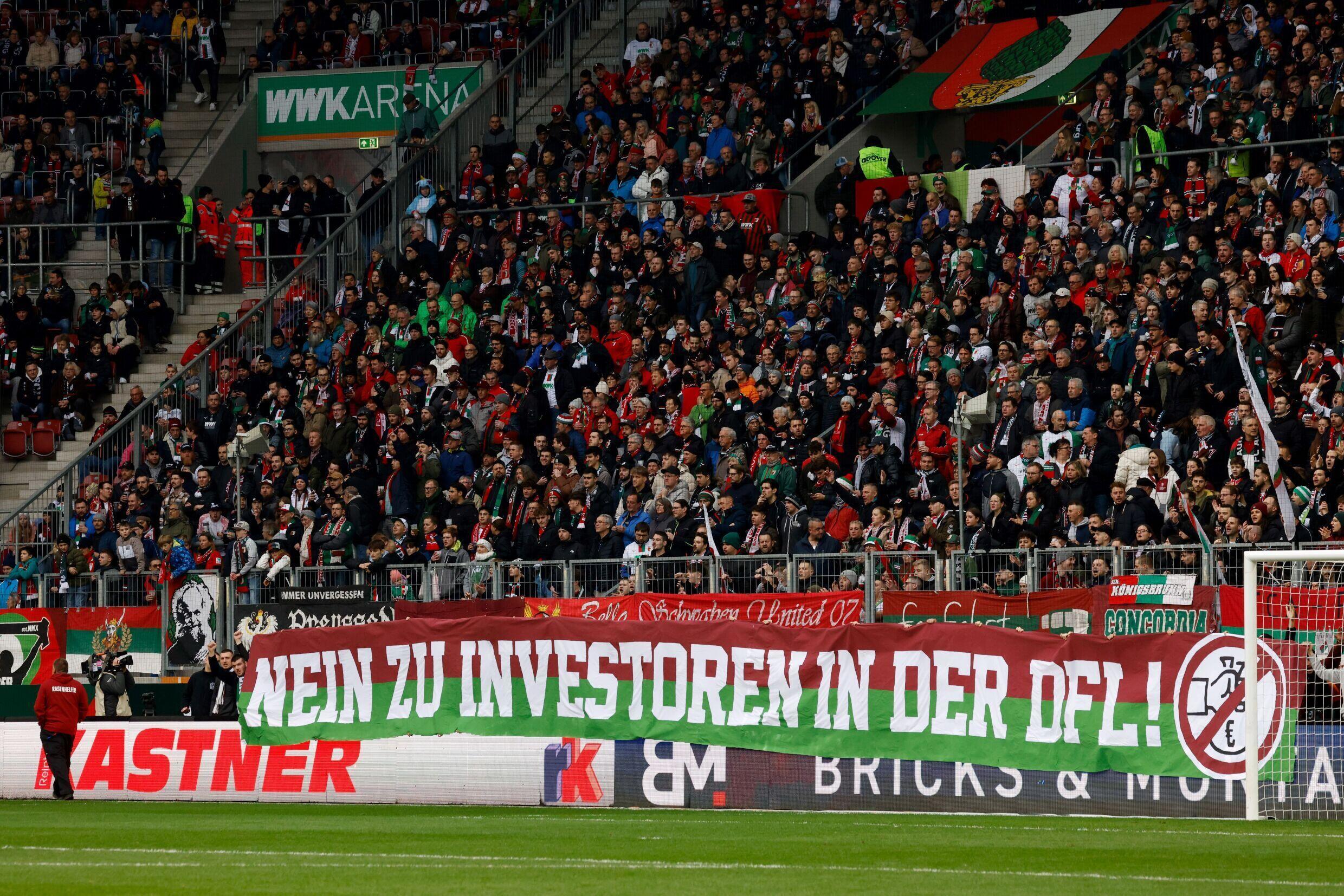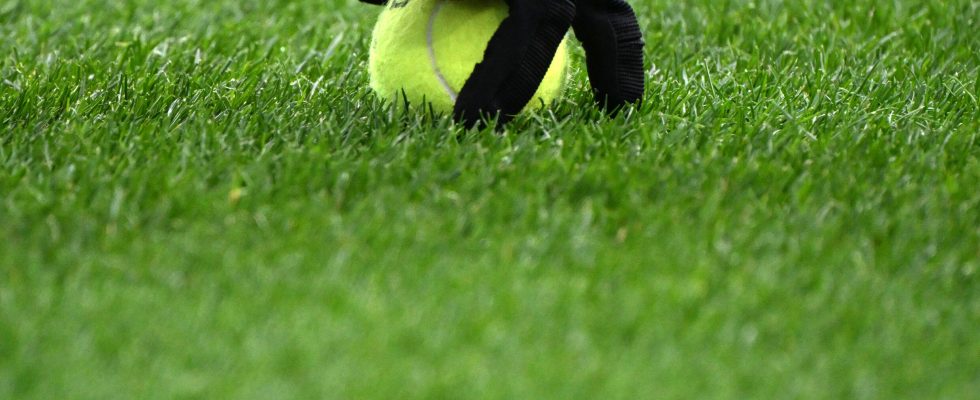After weeks of noisy protests, the German Football League (DFL) folded and renounced an agreement worth around one billion euros with a private investor, vilified by German supporters groups.
4 mins
“ In view of current developments, a successful continuation of the process no longer seems possible », Declared Hans-Joachim Watzke, spokesperson for the DFL board, after a meeting in Frankfurt (west).
The League was under pressure from supporters who had not skimped on the means to make their opposition to the project heard: banners displayed or empty stands at kick-off, chocolate gold coins and footballs thrown onto the pitch. tennis and even small remote-controlled cars, some equipped with smoke bombs, and driving the stewards crazy.
Many Bundesliga matches have been interrupted in recent weeks.
The 36 professional clubs of the German first division (Bundesliga) and 2nd division decided in December to call on a private investor, the CVC fund, in order to “ ensure long-term sustainable success » of the professional league.
In exchange for 8% of future television rights, the League was to receive a windfall of nearly a billion euros to help it market and promote the Bundesliga internationally, whose image is far from reaching that of English and Spanish championships despite prestigious clubs like Bayern Munich and full stadiums.
The League finally bowed to the supporters’ reaction even though “there is a large majority in favor of the entrepreneurial necessity of a strategic partnership” with an investor, lamented Mr. Watzke. The decision was taken unanimously.
Starting point
The DFL suffered a first setback last May, with a majority of clubs voting against the opening of discussions to find an investor.
After reaching an agreement in December to sell a smaller percentage of television revenues, German football’s governing body received offers from several interested investors, but only CVC remained in the running.
This Luxembourg investment fund is already very present in the sporting world, such as in France where it has been a minority shareholder since 2022 in the commercial subsidiary of the Professional Football League (LFP), or in Spain.
German professional football is ” in the middle of an event which takes place (…) between clubs, but also within clubs between professionals, coaches, managers, supervisory bodies, general assemblies and communities of supporters “, recognized Mr. Watzke, also boss of Borussia Dortmund.
Germany’s powerful fan organizations opposed any deal with private equity groups, saying the process lacked transparency and led to “over-commercialization” of their sport.
“50+1”
At the heart of the debates, the so-called 50+1 rule, which requires that German clubs hold at least 50% plus one vote of the rights of the League and that they thus maintain control over major decisions concerning it.

However, the December agreement defined several “red lines” ensuring in particular that the DFL, and not the investors, would decide on the kick-off time and the scheduling of matches as well as the sustainability of the 50+ rule 1.
But the decision was taken in December on the sly, according to its detractors, without being able to guarantee that the club representatives voted in accordance with the instructions of their members.
“ It’s a good day for German football fans “, declared Thomas Kessen, spokesperson for the supporters association “Our Curve” (“Our curve”), interviewed by the SID. “ The large, but very peaceful and very creative, protests were ultimately the key to success “, according to him.
For the League, it is necessary “ simply start from scratch » admitted Mr. Watzke. The DFL will now “ invite clubs for interviews » in the coming weeks to discuss what happens next.
